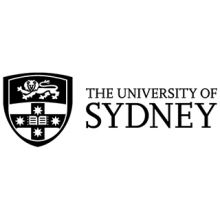The University of Melbourne managed to turn a predicted A$309 million (£174 million) budgetary black hole into a A$180 million surplus last year, according to preliminary financial results.
The unaudited accounts show an operating surplus of about A$8 million for 2020, despite the pandemic’s disruption of lucrative international enrolments and the significant costs of shifting the university’s operations online and supporting students through hard times.
Combined with the increased value of long-term assets such as endowments and investments – which must be included in recurrent operating results, under financial reporting rules – the university’s overall bottom line is expected to improve by A$180 million.
The figures suggest that Melbourne has rebounded from the Covid-19 crisis even more strongly than previously indicated. In September, the university revised its original prediction of a A$309 million shortfall to A$177 million, largely because of better than expected semester 2 enrolments.
The actual fall in revenue was A$275 million, according to the preliminary accounts, and the university allocated A$60 million in student support grants. But it reined in the losses through a spending reduction of approximately A$360 million and reducing capital expenditure by more than A$300 million. It also drew down on the university’s financial reserves by A$120 million and increased debt by A$300 million.
Vice-chancellor Duncan Maskell credited the surplus to “prudent financial management and the resilience of the university community”. But he warned that the university was not out of the woods, with revenue expected to be almost A$900 million below forecasts by the end of 2022.
“The future remains extremely uncertain as the effects of the pandemic will continue to be felt for several years to come,” Professor Maskell said. “[Despite] what the university was able to achieve last year…I am under no illusion that 2021 and 2022 won’t be just as challenging.”
The university said that the overall bottom line was likely to be some A$142 million less than the 2019 result, with the surplus money “not available to fund teaching and operations since much of it is tied to specific endowments”.
It remains to be seen how the revelations are received by staff at a university where cuts and redundancies have caused rancour. Professor Maskell said that the projections could still change, depending on market influences.
He said that staff should not assume that the buoyant result meant the university was awash with cash. “Not all money is the same money,” he told Times Higher Education. “The analogy I sometimes use is that you get your wages at the end of the week and you spend them on food and drink and everything else, but you don’t sell your house.”
Monash University announced its unaudited results earlier this month, with vice-chancellor Margaret Gardner telling staff that the institution had achieved an operating surplus of A$259 million thanks to “good work by many staff on all fronts”.
Monash had originally forecasted a 2020 revenue shortfall of more than A$350 million. Professor Gardner said that the university expected an “essentially break-even” surplus of A$55 million this year with deficits of around A$149 million in 2022 and A$77 million in 2023.
In September, the University of Adelaide revised its predictions of a A$100 million revenue shortfall to A$60 million. The University of Sydney downgraded its forecast losses from A$470 million to A$184 million, citing higher than expected enrolments from both domestic and international students.
Federation University vice-chancellor Duncan Bentley said that university councils had rightfully been “conservative” about their revenue projections, given the bad “press” about universities’ failure to anticipate Covid-19.
“It’s quite legitimate, given the exceptional circumstances, that people took a pessimistic view,” Professor Bentley told THE. “They didn’t want, as quasi-public organisations, to be shown on the record to have grossly underestimated [the damage]. It’s quite legitimate for everyone to have [taken] a very conservative view, but it’s wonderful that we’ve been able to turn it around.”
Register to continue
Why register?
- Registration is free and only takes a moment
- Once registered, you can read 3 articles a month
- Sign up for our newsletter
Subscribe
Or subscribe for unlimited access to:
- Unlimited access to news, views, insights & reviews
- Digital editions
- Digital access to THE’s university and college rankings analysis
Already registered or a current subscriber? Login









